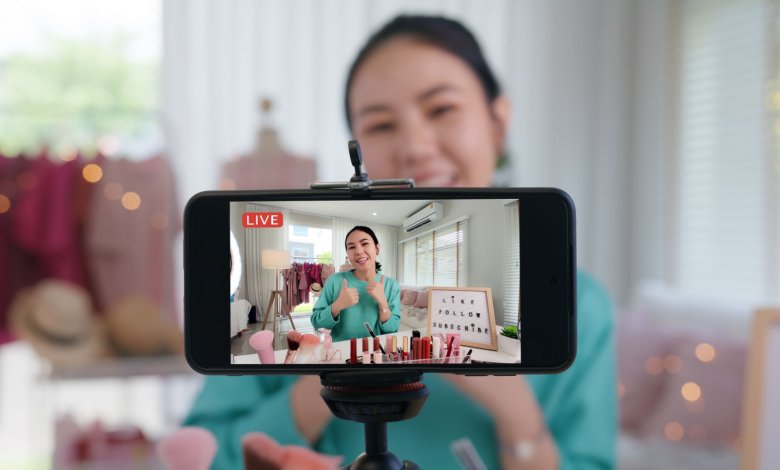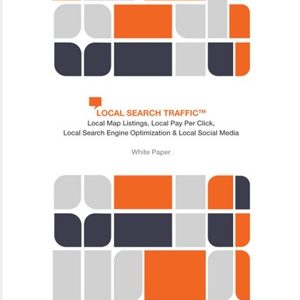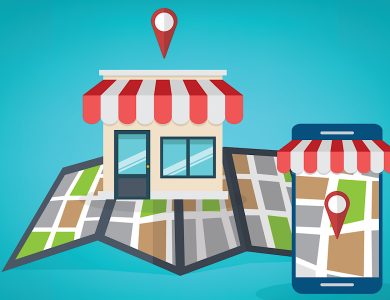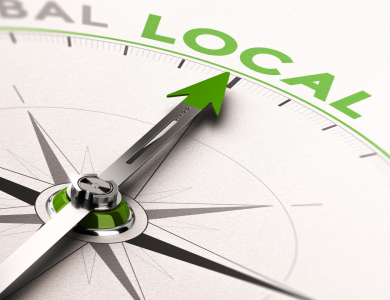
Small businesses face the ongoing challenge of standing out in crowded marketplaces, both online and off.
One strategy that has gained significant traction in recent years is leveraging prominent, trusted local influencers to help boost online authority and visibility and grow the business.
This approach enables businesses to tap into established community voices, build trust, and reach specific local audiences through value-added partnerships.
Understanding Local Influencer Marketing
Local influencer marketing involves partnering with people who have significant followings and/or influence within a specific geographic area or community.
These influencers may not have millions of followers like national or global influencers, but their impact on local consumers’ searching and buying decisions can be substantial.
According to a 2023 study by Influencer Marketing Hub, 82% of marketers plan to dedicate a budget to influencer marketing. While this statistic covers influencer marketing in general, the trend is increasingly relevant for local businesses as well.
Why Local Influencers Matter For Your Local Businesses
Targeted Local Reach
Local influencers have an audience that is likely to be in the same area as your business.
This means your marketing efforts are focused on potential customers who can actually visit your physical location or use your local services.
It reduces wasted exposure to audiences outside your service area, making your marketing much more efficient and cost-effective.
Authenticity
Local influencers are often seen as more relatable and trustworthy by their followers. They’re part of the community and understand local challenges, needs, preferences, and culture.
This authenticity can lead to higher engagement rates and more genuine interest in your business.
Their recommendations often come across as personal endorsements rather than paid advertisements, though their support should be clearly indicated as paid/sponsored if this is the case.
Cost-Effectiveness
Partnering with local influencers is generally more affordable than working with larger, national-level influencers, who are used to charging a premium.
Most small businesses have limited marketing budgets, putting those larger influencers out of reach. You can often negotiate deals with locals involving product exchanges or experiences rather than large cash payments.
As noted, the ROI of these types of “paid” relationships can be higher due to the targeted nature of the audience and the influencer’s local credibility.
Increased Local Visibility
Local influencer partnerships can boost a business’s presence in local search results and social media.
When influencers provide backlinks to your content, tag your business on social media, or use location-based hashtags, it can improve your local SEO by transferring some of their established authority and “localness” to you.
This increased visibility can lead to more foot traffic, website or social media visits, and, ultimately, sales.
Timely Communications
Local influencers are often the first to know about and share local trends because part of their job includes being engaged and aware.
Partnering with them can help small businesses quickly adapt their offerings or marketing to new trends and customer needs.
Community Engagement
Local influencers can help businesses connect more deeply with the local community.
They can facilitate meaningful interactions, promote local events, and help your business become a more integral part of the community fabric.
This can lead to increased customer loyalty and word-of-mouth marketing, both online and off, beyond just the influencer’s followers.
Cross-Promotion Opportunities
A local influencer may already have existing relationships with like-minded businesses and be able to make valuable, trust-backed introductions for cross-promotion.
These types of relationships can be positioned as a win-win for all local parties and the community in general.
Further, local community engagement is another signal to Google of your business’s localness and can influence your online authority relative to your competitors, who may not be as engaged.
This trust factor is pronounced at the local level, where influencers are naturally viewed as neighbors and contributing members of the community.
Identifying The Right Local Influencers
Finding the right local influencers is crucial for the success of your campaign. Here are some best practices:
- Define your target audience: Understand who your ideal customers are (demographics and psychographics), what types of local influencers they’re likely to follow, and in which channels. Many influencers appeal to specific niches, so be sure to determine whether or not they will reach your target.
- Use social listening tools: Utilize social media listening tools or hire someone to identify local hashtags and active influencer voices in your community.
- Check engagement rates: Look beyond follower counts and pay attention to how active an influencer’s accounts are. An influencer with 500-1000 engaged local followers is likely more valuable than one with 50,000 passive followers. A Rock Content study found that micro-influencers account for 91% of engagement posts, much higher than their larger counterparts.
- Assess content quality: Ensure the influencer’s content style and values align with your business and brand. Be sure to research the influencer’s past activity and other local relationships they may have maintained.
- Verify local presence: Confirm the influencer is genuinely active and influential in your specific locale. Review the influencer’s follower list, looking for friends you may have in common. Ask a few of your customers if they are familiar with the influencer.
Approaching Local Influencers
Once you’ve identified potential local influencers, the next step is to approach them to propose a partnership:
- Engage authentically: Start by following them on social media, liking/sharing their content, leaving thoughtful comments, and tagging them in your relevant posts. In other words, try to build a relationship before pitching a collaboration.
- Personalize your outreach: When you do reach out, make it clear why you chose them specifically. Reference specific content you feel would resonate with your audience, and be sure to highlight the importance of local involvement.
- Offer value: Clearly articulate what’s in the proposed relationship for them. This could be monetary compensation, free products/services, or exclusive experiences your business can offer.
- Be clear about expectations: Outline what you’re looking for in the collaboration, but also be open to their ideas; this should be a mutually beneficial relationship, after all.
- Start small: Consider starting with a small project to test the waters before committing to a larger campaign.
- Ask for references and/or results: Professional influencers should be able to provide references to other local businesses they’ve worked with. You can also ask them to provide details on results they’ve delivered to other businesses in terms of new followers, website traffic, or actual sales.
- Respect their audience: Local influencers have likely taken significant time to build trust with their followers. Be sure to respect this relationship and avoid pushing them to endorse overly promotional content.
Case Studies: Local Influencer Success Stories
A Gardening Supply Company Partners With A Local Gardener
A local family-owned gardening store collaborates with a prominent local gardener with 5,000 followers across Instagram, Facebook, and YouTube for a series of DIY gardening tutorial videos featuring their products and services.
Results:
- Increase in website traffic from social media and organic search to key product and service pages.
- Growth in email newsletter sign-ups.
- Boost in sales of products featured in tutorials.
Key Takeaway: Educational content from a trusted local source drives both engagement and sales.
A Butcher Partners With A Local Foodie On A Charity BBQ
A new local butcher with three well-established competitors partners with a local food influencer with 15,000+ highly engaged followers on Instagram, Facebook, and TikTok to promote and host a charity BBQ at his location.
The event is very well attended and the butcher receives positive feedback from several attendees, as well as charity organizers.
Results:
- Increase in website traffic and online purchases originating from social media and organic search.
- Significant growth of the butcher’s social media following.
- Single-day in-store sales record.
- A new partnership formed with the local charity, and a link to the butcher’s website from the charity’s site.
Key Takeaway: Community engagement via a known and trusted influencer boosts visibility, traffic, and sales.
Best Practices For Local Influencer Campaigns
Having identified influencers, here are some recommendations for running a successful campaign.
Set Clear Goals
Define what success looks like for your campaign. Is it increased foot traffic, online sales, or brand awareness? Setting specific, measurable goals is critical for evaluating the success of your campaign.
For example, a local bookstore might set a goal to increase website traffic by 20% and online sales by 5% during a three-month-long campaign with a local book reviewer. This can easily be tracked via Google Analytics.
Allow Creative Freedom
While it’s important to have guidelines, you should enable influencers to have some creative control. Their authentic, trusted voice and approach are what resonates with their audience. Overly scripted content can come across as contrived and may not perform as well.
Example: A local yoga studio partnering with a fitness influencer might provide key points about their classes and facilities but allow the influencer to create content in their own style, whether that’s a day-in-the-life TikTok video or a series of yoga and personal wellness stories on Instagram.
Tip: Consider providing a creative brief with your key messages and any mandatory elements, but encourage the influencer to present these in a way that feels natural to them.
Leverage Multiple Platforms
Don’t limit yourself or your influencer to just one social media platform. A multi-channel and content-type approach can maximize reach and cater to different audience preferences.
Tip: Consider each platform’s strengths and how they align with the goals you’ve defined. Instagram or TikTok might be great for entertaining/visual impact, while YouTube could be better for more detailed product demos and information.
Foster Long-Term Relationships
Instead of one-off posts, consider ongoing partnerships with influencers who truly align with your brand messaging. This can lead to more authentic content and stronger audience trust over time.
Example: A local pet store might partner with a popular dog trainer for a monthly “Ask the Trainer” Instagram series, creating an ongoing valuable resource for local pet owners.
Tip: Start with a smaller project and, if it’s successful, propose a longer-term and more involved campaign. This approach will enable both sides to ensure there’s a good fit before committing to a lengthy partnership.
Measure And Adjust
Use unique tracking links, promo codes, and analytics tools to measure the impact of your campaigns and adjust your strategy accordingly. Unique links and codes are particularly important if you start working with more than one influencer, as you’ll want to understand which is delivering the best results.
This data-driven approach will enable you to refine your campaigns over time. Set up regular check-ins to review campaign performance with your partner.
Be prepared to pivot your strategy if certain approaches aren’t yielding the desired results. Taking a data-driven approach will no doubt impress your partner and solidify your relationship.
Comply With Regulations
Ensure all sponsored content is clearly disclosed according to FTC or other regulatory guidelines. This maintains trust with the audience and avoids potential legal issues. Provide your influencer partners with clear guidelines on how to disclose partnerships within the context of campaigns.
The FTC recommends disclosures are clear, conspicuous, and not buried in a string of hashtags. Example: An influencer posting about a local fitness apparel store should include clear language like “#ad” or “Sponsored by [Store Name]” in a prominent place in their post.
Remember, the key is to balance authenticity while also achieving your desired marketing goals. Regular evaluation and adjustment of your strategy will help ensure long-term success in your local influencer marketing efforts.
Challenges And How To Overcome Them
All digital marketing campaigns come with some challenges and there are some which will be specific to local businesses.
These should not, however, deter business owners from testing this potentially powerful approach.
- Limited pool of influencers: In smaller locales, you might find a limited number of available or suitable influencers. If this is the case, expand your definition of influence to include local community leaders, business owners, or even enthusiastic customers. This may mean results will take a little longer to achieve.
- Measuring ROI: It can be challenging to directly attribute sales and revenue to influencer campaigns. As noted, use unique promo codes and tracked links, custom landing pages, or in-store surveys to track your partner’s impact. You may also ask them to share the stats they obtain from social media or their website.
- Maintaining authenticity: There’s a risk of the partnership feeling forced or inauthentic. Always focus on building genuine relationships with influencers and enable them, wherever possible, to speak in their own voice.
- Budget constraints: Small businesses often have limited marketing budgets. Many small influencers are well aware and will consider non-monetary compensation like product exchanges or exclusive experiences. For others, this is actually their preference and perhaps why they became an influencer in the first place; to get cool stuff for free.
The Future Of Local Influencer Marketing
Local influencer marketing is likely to grow as a potentially lucrative option for local business owners.
Forecasts predict influencer marketing spending will reach $5.89 billion in the US by 2024, with a significant portion of this growth happening at the local level.
As consumers increasingly seek authentic, trusted, community-based reviews and recommendations, local influencers are positioned to play an even more crucial role in small business marketing strategies.
Conclusion
Utilizing local influencers for digital marketing success offers small businesses a powerful way to connect with their community, build trust, and drive growth.
By carefully identifying the right influencers, approaching them thoughtfully, and creating authentic partnerships, businesses can tap into the power of local influence to achieve key marketing goals.
Remember, success lies in authenticity, mutually realized value, and a solid understanding of your local market/audience.
Start small, measure your results, and be prepared to adapt your strategy as you learn what works best for your unique business and community.
More resources:
- How To See Google Search Results And Rankings For Different Locations
- Adapting Your Digital Marketing Strategy To Local Events And Seasons
- A Guide to Local SEO
Featured Image: Chay_Tee/Shutterstock



